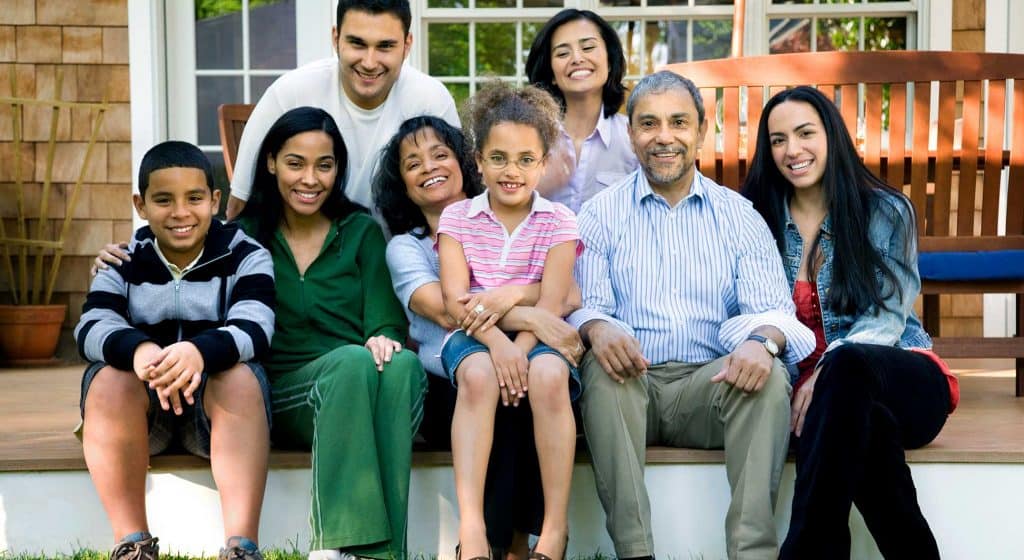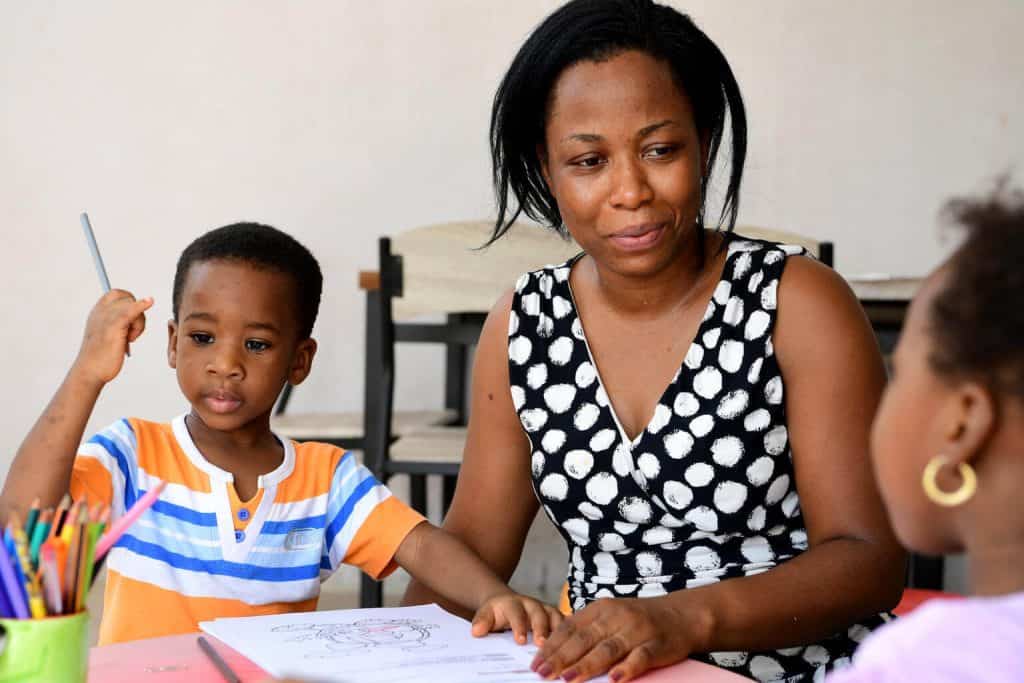A family is a group of people consisting of parents, children, and relatives. The number and member of the family may differ from one group to another. However, they are a part of either a single-parent, nuclear or an extended family. In contrast to the single-parent family, the nuclear family and extended family has two parents.
Although the definition and concept of the family have changed over the course of years, the basic criteria to become a family remain the same. A family is a group of people bound my relation, emotion, love, support, and a framework of values.
Some interesting facts about extended family
According to AmericanProgres.org, the U.S. population residing in extended families grew from 58 million in 2001 to 85 million in 2014. In 2014, joint families represented 17% of all households.
In Asian countries like China, India, and Indonesia, at least 80% of children are born into two-parent families, and at least 40% live with extended family members.
Almost 23% of U.S. children under the age of 18 live with a single parent and no other adults. It is more than three times the share of children around the world who do so.
Of all the different concepts, extended family is the oldest and the most recurring concept of family in the world. What binds a group of people to stay in an extended form of the family?
What is an Extended Family?
It is a family that extends beyond the nuclear family, consisting of parents (father and mother), children, siblings (aunts and uncles), grandparents, and cousins, all living in the same household.
It is essential for an extended family to live in the same household. The members of the extended family include a person’s relatives outside of the immediate family circle who basically consists of parents and their children.
Also known as the joint family, a group of families often includes multiple generations of the family. The principles of an extended family are as follows:
Shared Responsibility

An extended family has well defined its shared responsibility. Each member of the family bears the responsibility for running the household. The work is generally divided into each individual like kitchen, laundry, shopping, cleaning, and working out of the house. The day begins with assigning tasks to each member and ends with sitting together to discuss the outcome.
Common culture

Each member of the extended family shares a common culture. The culture may comprise of different customs, rituals, festivals, and social behavior. If a member is not allowed to visit a certain place or eat a certain food, then the other member of the family will also face the same directive. They share a common lifestyle such as eating breakfast and dinner together comprising of the same item.
Equal rights over the property
Each member of the family owns equal rights over the property. In an extended family, a member outside the immediate family circle can claim their right over the property.
Common dining

The dining culture in the extended family is common. Everyone sits together to eat such as breakfast and dinner. Because of the shared kitchen in most joint families, the prepared meals often comprise of the same items eaten by each member of the family. Although common dining culture is less likely seen in western societies, the extended family members in Asian communities always sit together to eat.
Decision making

Although the ultimate decision is made by the head of the family such as grandfather or father in the case of a patriarchal family, each member of the family has a say on the matter.
Benefits of living in an Extended Family
Despite all the naysay, there are many benefits to living in an extended or a joint family.
Strong Family Bonds

Family members who stay close in the same house often develop stronger bonds compared to a group of nuclear families staying separately. Although social media, frequent chats, and visits help families to come closer.
The members living under the same roof while sharing responsibilities tend to develop stronger bonds. If one of the family members is facing a financial or health-related problem, other members will dive in to support.
Provides Support to Childcare

A common saying goes, “It takes a village to raise a child,” which is true in the case of extended family. In a large family living under the same house take up the responsibility of rearing a child.
Most often, the elders of the family take it up to themselves to raise the children. One big advantage of such a family system is that it saves on childcare support and offers more time for a child to grow amongst the close family members.
Children raised in a joint family grow up to be a caring adult who respects the elders.
Offers Financial Support

When the responsibilities are commonly shared, the financial burden is also shared among family members. It is one of the primary benefits of living in a large family.
It drastically reduces the family’s financial burden. The rent, monthly electricity bill, ration, etc. are commonly shared by each adult.
Provides Companionship
There is always someone present for someone. An extended family living under the same roof often shares the same space.
Children often accompany elderly grandparents and other adults can confide in one of the members of the family. Members of the extended family often share the worries, concerns, and responsibilities amongst themselves.
Nuclear Family vs. Extended Family
A nuclear family, in oppose to extended family, only comprises of two parents and their children. Also known as the elementary family or conjugal family, the nuclear family’s concept b

ecame popular with the rise in capitalism in the US.
The term `nuclear` originated from the Latin word `nucleus`, which in turn comes from another the Latin word `nux.` Nux is similar to `nut` in English. Merriam-Webster dates the term back to 1947. Hence, it’s a fairly new concept.
The extended family comprises of a nuclear family along with other immediate members of the family such as uncle, aunts, cousins, and grandparents.
Although experts from different countries weigh heavily on either family concept, both have their own pros and cons.
Experts believe that individuals who grow up in a nuclear family structure are more child-centric and self-reliant. Generally, the parents share the responsibility of their children making them self-reliant. Also, the individual who chooses to create a nuclear family is generally those who have higher educational attainment and more economic mobility.
Many recent studies have shown that the joint family structure comprising of intergenerational members make parenting easier. It is true in many cases. When parents go out to work, other members of the family can look after the children.
In a nuclear family, the financial responsibility is born by only two members, the parents. The hiring of additional assistance such as child care, maid service, or mid-wives is common in nuclear families.
Immediate family vs. Extended family
The immediate family of a person basically includes their parents, children, and siblings. Extended family takes in the broader concept of family which generally includes immediate family members and relatives such as an uncle, aunts, cousins, and in some cases in-laws.
Many extended or joint families only consist of immediate family members. An extended family tree often contains grandparents, their children, and children’s children.
